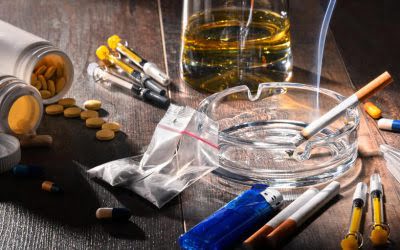Contents
Thin blood also makes it harder to heal from everyday injuries. These changes in the blood aren’t dangerous for most people, but those on anticoagulant medications should limit their alcohol intake to one standard drink per day. It’s important to talk with a doctor about drinking alcohol while taking blood thinner medications. Occasional, moderate alcohol use should be safe for most people who are taking blood thinners.
Alyssa who is the National Director of Digital Marketing, joined the Banyan team in 2016, bringing her five-plus years of experience. She has produced a multitude of integrated campaigns and events in the behavioral health and addictions field. Through strategic marketing campaign concepts, Alyssa has established Banyan as an industry leader and a national household name.
Replacing that medication with alcohol does not provide the effects the doctor was aiming for. And it also increases the risk of other issues, such as hemorrhagic stroke. The quick answer to this question is yes, alcohol does act as a blood thinner. Drinking a moderate amount of alcohol can help prevent blood clots and reduce the risk of a heart attack, but there are a few risks as well. Excessive drinking and chronic alcohol use can raise your blood pressure to unhealthy levels. Binge drinking can temporarily raise your blood pressure, and consistent heavy drinking can raise cause hypertension.
As many as three million people take blood thinners each year, but some may not be aware of how these medications interact with substances like alcohol. On their own, blood thinners can create a number of health risks and increase the chances of serious bleeding. When combined with alcohol use, however, the risks become much more severe. People taking blood thinners with reduced liver function may accumulate more medication in their bloodstream. Increasing the level of blood thinners in the body can lead to an increased risk of bleeding.
- Alcohol may then raise the level of triglycerides, or fats, in the blood.
- Even though it could be harmful, people who struggle with alcohol abuse may find themselves combining alcohol and blood thinners even though they know they shouldn’t.
- These drugs work by blocking the clotting process in the blood.
- Alcohol can also affect the action of platelets, which are the components of the blood that form clots.
- Banyan has been helping people with addictions in communities across the nation achieve long-term sobriety, and you can be one of them.
Alcohol increases the effects of Pradaxa through an unknown mechanism. This increases your risk of bleeding and makes it advisable to avoid mixing alcohol and Pradaxa. Coumadin is one of the most commonly used blood thinners in the U.S., but it carries a 3% to 6% risk of relationship between bone mineral density and alcohol intake major bleeding. Alcohol should be avoided when taking Coumadin, as it is one of the most serious risk factors for complications with this medication. Some people may initially follow these recommendations but become tempted to increase their alcohol intake over time.
Yet because of this effect, drinking alcohol could potentially increase your risk for the bleeding type of strokes — especially when you drink it in large quantities. Alcohol use — especially in excess — can also pose other risks to your health. Drinking more than two servings of alcohol dailyincreases the risk of blood clot development. Alcohol also makes the platelets you do have especially sticky, increasing the likelihood that they’ll clump together or clot. While drinking a glass of wine or two a day may not present any risks, having more than three alcoholic drinks daily could increase your risk for a stroke caused by hemorrhaging.
In addition, alcohol prolongs the action of Eliquis by slowing how quickly it is eliminated by the body. It is best not to combine these substances at all unless you have first spoken with your doctor. Mixing alcohol and aspirinincreases the toxicity of aspirin and can increase the risk of internal bleeding.
Does Alcohol Act As A Blood Thinner?
Moderate alcohol use is generally safe while taking most blood thinners. For healthy adults, doctors recommend limiting alcohol intake to a maximum of two drinks a day for males and one drink a day for females. There aretwo primary typesof blood thinners, which include anticoagulants and antiplatelet medicines. Anticoagulants slow your body’s making of clots, while antiplatelet medicines help prevent platelets from clumping and creating a clot.

If alcohol is abused, it can increase the risk of heart attacks and cause damage to other organs. Blood thinners are medications used to prevent and treat blood clots. One standard drink for women and two standard drinks for men per day may improve heart health, according to the studies. Most people have heard about the studies that have said that alcohol may actually be good for your heart. These studies purport that moderate amounts of alcohol may thin your blood and improve heart health.
Is Alcohol a Blood Thinner?
It increases the risk of bleeding-type strokes as well as blood loss from what would otherwise be a small injury. These are just a few questions asked by patients to their physicians. Some studies have shown that in moderation, wine is actually a heart-healthy form of alcohol. Others claim benefits that moderate intake of alcohol can act somewhat like a blood thinner in the body. It can be suggested to them, that alcohol doesaffect blood clotting processes, but not in the way some might think. Alcohol can reduce some of the “stickiness” of red blood cells, which can lower the odds of blood clotting.

It may reduce your risk for strokes caused by blood vessel blockages. Mixing Naproxen and alcoholincreases the risk of damage to the stomach lining and makes internal bleeding and stomach ulcers more likely to develop. There is also a risk that mixing these two medications could thin your blood excessively. The nutritional therapy for alcohol use disorder length of time that blood thinners continue to affect your blood depends on many different factors. These factors can include the type of blood thinner used, the dosages you are using, your overall health, your diet and your genetics. Depending on the blood thinner, the effects can last for hours or even days.
Pulmonary Embolism Symptoms, Treatment & Prevention
Having the restraint to consume only moderate amounts of alcohol may be challenging for some individuals. Talk with a healthcare professional to find out which blood thinner you qualify for. A 2011 literature review that included 84 prior research studies found that people who drank alcohol had a reduced number of cardiovascular and stroke deaths. Researchers also found decreased rates of coronary artery disease and non-fatal stroke among people who drank alcohol compared to those who didn’t.

That could be very dangerous, especially if you hit your head. The relationship between alcohol and deep vein thrombosis may depend on what, and how much, you pour in your glass. You’ll get an email weekly with any new questions answered by this doctor.
Does Alcohol Prevent Blood Clots?
When little blood vessels get injured from everyday activities, you may also notice small bruises appear on your skin. This isn’t usually a major concern unless they’re extensive or the discoloration seems extreme. Get emergency medical care immediately if you or someone else has symptoms of severely low blood pressure. In Journalism & Media Studies from Rutgers University and is a contributing content writer for AlcoholRehabHelp. Trained Emergency Physician who has practiced for 15 years and also had guided alcohol and drug addiction programs for the past 20 years.
Alcohol Interactions with Anticoagulants and Antiplatelet Medications
Since you’re not logged in, check your email after you submit to confirm. With thinner blood, you may also experience more nosebleeds as well as more bleeding of gums when brushing your teeth. Our experts continually monitor the health and wellness space, and we update our articles when new information becomes available. Even if you have a normally functioning liver and kidneys, alcohol can limit your liver’s ability to metabolize other compounds.
The risk of “bleeds” or bleeding strokes also increases as a result of heavy alcohol use. Yes, drinking alcohol can thin your blood because it prevents blood cells from sticking together and forming blood clots. This is why some researchers suggest that the occasional drink can actually lower your risk of ischemic strokes or strokes caused by blocked blood vessels. If a doctor recommends blood thinners, it’s to reduce the risk of certain health concerns.
To counter alcohol’s effects on the blood, your doctor may prescribe you blood-thickening medication. When it comes to taking any medications, always be sure to speak to your doctor about drinking and using other medications. It disrupts blood cell production in the bone marrow reducing the number of platelets in the blood.
A wide range of factors determines how the body responds to chronic heavy drinking, but this activity can result in significant harm. Medical News Today has strict sourcing guidelines and draws only from peer-reviewed studies, academic research institutions, and medical journals and associations. We link primary sources — including studies, scientific references, and statistics — within each article and also list them in the resources section at the bottom of our articles.
You should check with your doctor before mixing Lovenox and alcohol. Surprising Causes of DVT These could raise your risk of blood clots. If you have high blood pressure, you should don’t drink alcohol while taking these medications do your best to avoid alcohol. Usually, this after three or more drinks are consumed in a single sitting. For healthy individuals, this rise in blood pressure is temporary.